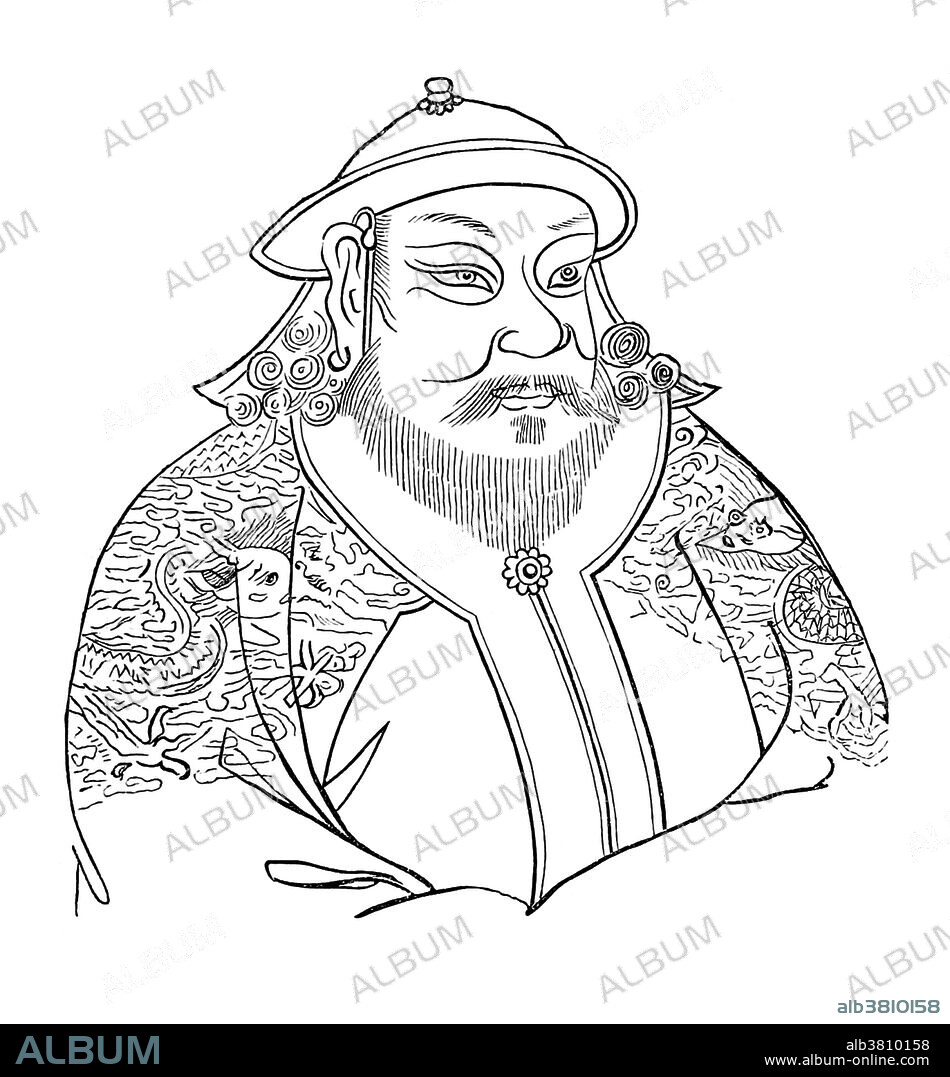alb3810158
Kublai Khan, Emperor of China, Yuan Dynasty

|
Zu einem anderen Lightbox hinzufügen |
|
Zu einem anderen Lightbox hinzufügen |



Haben Sie bereits ein Konto? Anmelden
Sie haben kein Konto? Registrieren
Dieses Bild kaufen

Titel:
Kublai Khan, Emperor of China, Yuan Dynasty
Untertitel:
Siehe automatische Übersetzung
Kublai Khan (September 23, 1215 - February 18, 1294) was a Mongolian leader who made an impact on China by investing in his newly acquired people and providing the foundations of a grand empire. He showed tolerance towards the religions of his new subjects and because of his leniency, a relationship formed between him and his people. He created aid agencies, increased the use of postal stations, established paper currency, reorganized and improved roads, and expanded waterways. In 1275, Marco Polo, a Venetian explorer, visited Xanadu and a relationship of trust was formed between the two. Polo's reports on Xanadu and China were new to Western Europeans and sparked further interest in eastern world exploration. Unfortunately, after turning from his nomadic heritage and adopting Chinese manners, his Mongolian government failed to remain in control and was eventually overthrown by the Chinese. Suffering from gout, diabetes, obesity and depression he died in 1294, at the age of 78.
Bildnachweis:
Album / LOC/Science Source
Freigaben (Releases):
Model: Nein - Eigentum: Nein
Rechtefragen?
Rechtefragen?
Bildgröße:
3600 x 3880 px | 40.0 MB
Druckgröße:
30.5 x 32.9 cm | 12.0 x 12.9 in (300 dpi)
Schlüsselwörter:
13. JAHRHUNDERT • 13. JH. • BERÜHMT • BERÜHMTE PERSÖNLICHKEIT • EROBERER • ILLUSTRATION • ILLUSTRATIONS • KONQUISTADOR • MANN • MONGOLEN • NOTABEL • PERSON • PERSöNLICHKEITEN • PERSÖNLICHKEITEN • PORTRAIT • PROMINENZ • RELIGIONSFREIHEIT
 Pinterest
Pinterest Twitter
Twitter Facebook
Facebook Link kopieren
Link kopieren Email
Email
